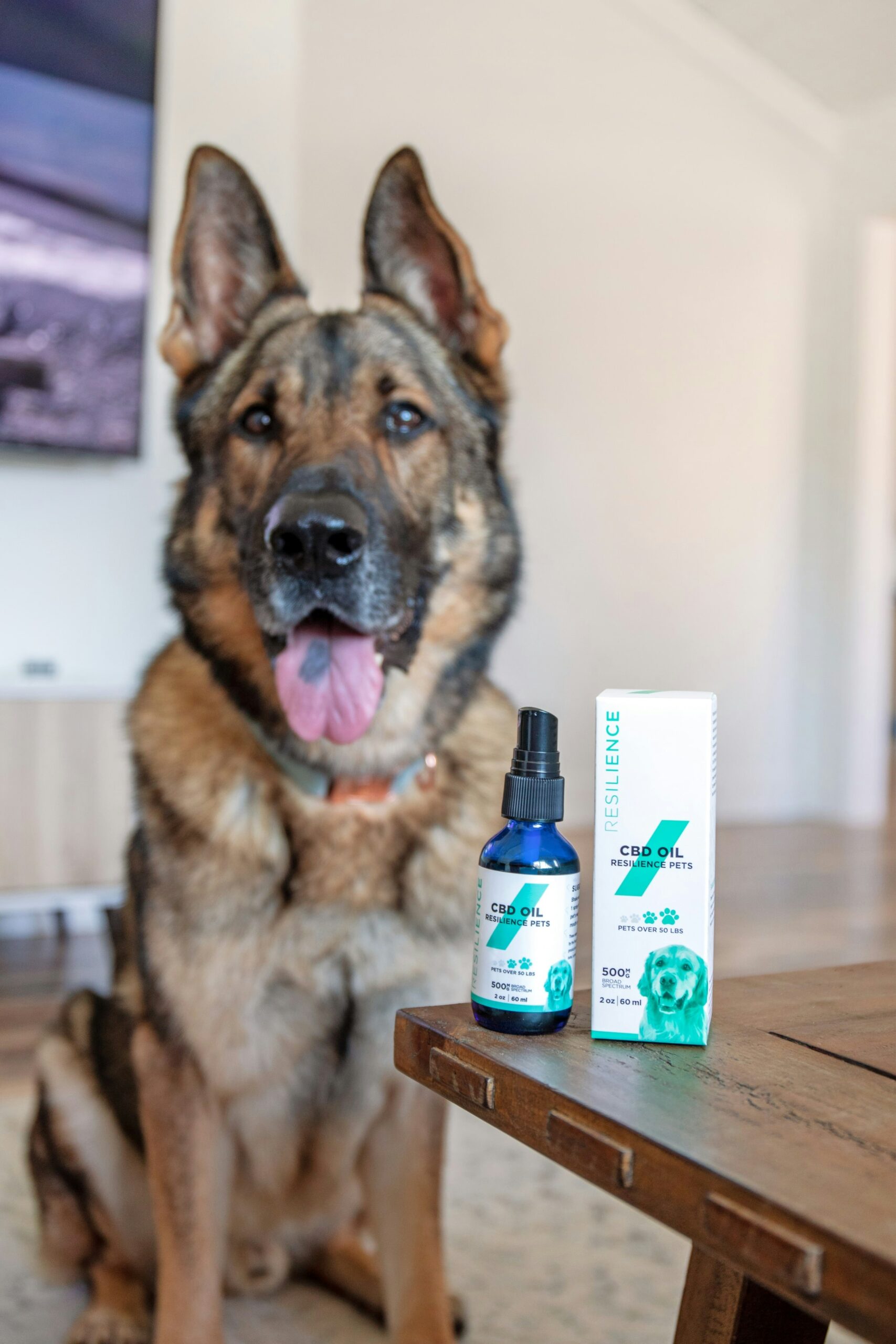The Benefits of Pet Supplements: What They Can Do for Your Pet’s Health
Introduction to Pet Supplements
In recent years, pet supplements have gained considerable traction among pet owners aiming to optimize their pets’ health. As a concept, pet supplements encompass a wide range of products designed to promote various aspects of a pet’s well-being, from joint health to immune support. These supplements, which can come in the form of pills, chews, powders, or liquids, are specifically formulated to provide essential nutrients that may not be adequately obtained through diet alone.
Maintaining the optimal health of pets can be challenging due to several factors. One primary concern is that even the most well-rounded diets may fall short in meeting the nutritional needs of pets, particularly if they have specific health conditions, breed-specific requirements, or are in different life stages. Commercial pet foods, although regulated, often do not contain sufficient quantities of certain vitamins, minerals, and other beneficial compounds required for long-term health. This is where pet supplements come into play, offering a practical solution to bridge these nutritional gaps.
The increasing popularity of pet supplements is also driven by a growing awareness of preventative health measures among pet owners. Much like their human counterparts, pets can benefit significantly from supplements that support their overall health and potentially mitigate the onset of illnesses. Furthermore, veterinarians frequently recommend these supplements to address specific deficiencies or health concerns, making them an attractive option for proactive pet health management.
Indeed, incorporating pet supplements into a pet’s daily regimen can confer numerous benefits, from improved joint mobility in aging pets to enhanced skin and coat health. By addressing specific health needs, these supplements complement a balanced diet, facilitating a more holistic approach to pet care. As we delve deeper into the myriad benefits of pet supplements, it becomes evident that they play a pivotal role in fostering a healthier, happier life for our furry companions.
Understanding the Different Types of Pet Supplements
Pet supplements come in a wide variety of forms, each designed to address specific health needs and enhance the overall well-being of our furry companions. Vitamins, minerals, probiotics, joint supplements, and essential fatty acids are among the primary categories available, each offering distinct advantages.
Vitamins are crucial for maintaining optimal health in pets, just as they are for humans. They support various bodily functions, including immune system efficiency, skin health, and vision. Common pet vitamins include Vitamin A, which supports vision and skin health; Vitamin B-complex, which aids in metabolism and energy production; and Vitamin E, known for its antioxidant properties.
Minerals play a significant role in pet health, too, ensuring proper bone development, nerve function, and overall metabolic processes. Calcium and phosphorus are vital for strong bones and teeth, while magnesium and potassium are essential for muscle function and nervous system health. Iron, on the other hand, supports oxygen transport in the blood.
Probiotics are another essential supplement, particularly for digestive health. These beneficial bacteria help maintain a balanced gut flora, which is pivotal for nutrient absorption and immune function. Pets experiencing digestive issues, such as diarrhea or constipation, often benefit significantly from probiotic supplements.
Joint supplements, often containing glucosamine and chondroitin, are aimed at maintaining joint health and mobility. These supplements are especially beneficial for older pets or breeds prone to joint issues. Glucosamine supports the repair and development of cartilage, while chondroitin sulfate helps prevent cartilage breakdown.
Essential fatty acids, such as Omega-3 and Omega-6, are crucial for maintaining a healthy coat and skin. These fatty acids also have anti-inflammatory properties, which can be particularly beneficial for pets with conditions like arthritis or allergies. Additionally, they support overall cardiovascular health and brain function.
By understanding the different types of pet supplements and their benefits, pet owners can make informed decisions to enhance their pets’ health and quality of life effectively.
Boosting the Immune System
In the quest to ensure optimal health for our pets, boosting their immune system through targeted supplements is gaining recognition. A robust immune system is crucial as it equips pets to fend off infections, combat diseases, and recover swiftly from ailments. Among these beneficial supplements, omega-3 fatty acids and antioxidants stand out due to their significant roles in promoting immune health.
Omega-3 fatty acids, typically derived from fish oil, are essential for maintaining cellular health. They possess anti-inflammatory properties, which can mitigate chronic inflammation—a precursor to various health issues including arthritis and heart disease. By reducing inflammation, omega-3s support a pet’s immune system, ensuring it functions effectively without being overactive, which can lead to autoimmune disorders. Furthermore, these fatty acids enhance the efficacy of white blood cells, enabling them to respond more efficiently to invaders like bacteria and viruses.
Antioxidants are another cornerstone of immune support. Natural sources such as vitamins E and C, selenium, and flavonoids, found in many fruits and vegetables, can help negate the effects of free radicals. These unstable molecules can cause oxidative stress, damaging cells and compromising the immune system. Antioxidants neutralize free radicals, thereby protecting cells and supporting the overall immune response. By incorporating antioxidant-rich supplements into a pet’s diet, pet owners can help bolster their pet’s natural defense mechanisms.
Pet supplements like colostrum and medicinal mushrooms also play a pivotal role. Colostrum, the first form of milk produced after giving birth, is rich in antibodies and growth factors that enhance the immune system. Medicinal mushrooms such as reishi and shiitake boast immunomodulatory properties; they can stimulate or suppress immune responses as the situation demands, providing balanced immune system activity.
Incorporating these supplements into a pet’s regimen should be done carefully, ideally in consultation with a veterinarian to ensure balanced and safe dosage. Promoting a healthy immune system through the right supplements can significantly improve a pet’s quality of life, keeping them active and healthy for years to come.
Improving Skin and Coat Health
The condition of a pet’s skin and coat is often a reflection of its overall health. Supplements like biotin, omega-3, and omega-6 fatty acids can play a crucial role in enhancing skin and coat health. Pets, much like humans, can suffer from dry, flaky skin and a dull coat, which are often symptoms of nutritional deficiencies. Incorporating these specific nutrients into their diet can promote a lustrous coat and alleviate common skin issues such as dryness, itching, and inflammation.
Biotin, a water-soluble vitamin, is essential for the synthesis of fatty acids and for the metabolic function of cells. It helps in maintaining the integrity of the skin barrier, preventing issues such as dandruff and excessive shedding. Beyond its internal benefits, biotin can improve the external appearance of pets, giving their fur a healthy, shiny appearance.
Omega-3 and omega-6 fatty acids, found abundantly in fish oils and flaxseed, are also integral to skin health. These polyunsaturated fats have anti-inflammatory properties that can reduce the symptoms of allergic reactions and skin irritations. Omega-3, in particular, supports the immune system and can help manage chronic skin conditions such as dermatitis. Additionally, these fatty acids can contribute to a more vibrant and glossy coat, reflecting improved overall well-being.
For pets with chronic skin issues, such as erythema or hotspot recurrence, omega fatty acids can offer a non-pharmacological approach to management. Regular supplementation can reduce the need for repeated use of topical treatments or medications, providing a more holistic approach to skin health.
Therefore, ensuring that your pet’s diet is supplemented with necessary nutrients like biotin, omega-3, and omega-6 can lead to significant improvements in their skin and coat health. By addressing the root causes of skin issues, these supplements not only enhance outward appearances but also contribute to the overall health and happiness of pets.
Supporting Joint and Bone Health
Maintaining optimal joint and bone health is crucial for the overall well-being and longevity of pets. As pets age or if they are predisposed to joint issues, their mobility and comfort can significantly decline, leading to a diminished quality of life. This is where supplements play a pivotal role. Notable among these are glucosamine, chondroitin, and methylsulfonylmethane (MSM), which are extensively recognized for their efficacy in promoting joint health and preventing degenerative conditions such as arthritis.
Glucosamine, a natural compound found in cartilage, is fundamental in forming and repairing joint tissues. It aids in reducing inflammation and enhances the lubrication of joints, ensuring smoother movements and increased flexibility. By incorporating glucosamine supplements into a pet’s diet, owners can potentially alleviate the pain and discomfort associated with joint degeneration, thereby improving their pet’s day-to-day activities.
Chondroitin, often paired with glucosamine, works synergistically to bolster joint health. It impedes the breakdown of cartilage and maintains the elasticity and hydration of joints. By slowing down the deterioration process, chondroitin helps in preserving the structural integrity of joints, which is particularly beneficial for older pets or those susceptible to joint issues like hip dysplasia.
MSM, an organic sulfur-containing compound, is renowned for its anti-inflammatory properties. It assists in reducing swelling and pain around the joints, which is crucial for pets suffering from chronic conditions. Furthermore, MSM supports the repair of connective tissues and muscles, enhancing overall joint functionality and contributing to a pet’s mobility and comfort.
By integrating these supplements into a pet’s regimen, pet owners can provide valuable support for their pets’ joint and bone health. This proactive approach not only mitigates the onset of debilitating conditions but also ensures that pets remain active, comfortable, and vibrant throughout their lives. Investing in the right supplements can make a substantial difference in a pet’s mobility and overall quality of life.
Enhancing Digestive Health
Maintaining a healthy digestive system is crucial for the overall well-being of your pet. A balanced gut microbiota not only aids in efficient nutrient absorption but also enhances immunity and prevents gastrointestinal complications. One effective way to support digestive health is through the use of pet supplements, particularly probiotics and prebiotics.
Probiotics are live beneficial bacteria that, when administered in adequate amounts, confer a health benefit on the host. These bacteria crowd out harmful pathogens, balance the gut flora, and bolster the digestive process. Including probiotics in your pet’s diet helps to alleviate common digestive ailments such as constipation and diarrhea. They also play a pivotal role in mitigating the impacts of stress and antibiotics, which can disrupt the natural balance of gut bacteria.
Complementing probiotics, prebiotics are non-digestible fibers that nourish beneficial bacteria in the gut. Essentially, they serve as food for the good bacteria, promoting their growth and activity. Prebiotics help in maintaining a balanced gut environment, which is essential for efficient digestion and optimal nutrient absorption. By boosting the population of beneficial bacteria, prebiotics enhance the pet’s immune resilience and reduce the risk of intestinal inflammation and infections.
Moreover, other supplements like digestive enzymes can be of significant benefit. These enzymes assist in breaking down food components, making it easier for the body to absorb nutrients. They particularly help pets with enzyme deficiencies that often result in poor digestion, bloating, and malabsorption syndromes.
Incorporating these targeted supplements into your pet’s diet can significantly fortify digestive health, ensuring that your pet maintains a robust gastrointestinal tract. Remember to consult your veterinarian to determine the most appropriate supplements and dosage for your pet based on their individual health needs.
Cognitive and Mental Health Benefits
Maintaining your pet’s cognitive and mental health is paramount to ensuring a happy and fulfilling life for your furry companion. With the progressive advancements in veterinary science, supplements have increasingly become vital in supporting mental sharpness and reducing anxiety in pets. Notably, omega-3 fatty acids and specific vitamins are integral elements known to promote cognitive function and provide a calming effect, particularly in pets experiencing stress or age-related cognitive decline.
Omega-3 fatty acids, primarily sourced from fish oil, play a crucial role in brain health. Rich in EPA and DHA, omega-3s are renowned for their anti-inflammatory properties. For pets, inclusion of these fatty acids in their diet can enhance brain development in young animals and maintain cognitive function in older pets. Studies have indicated that omega-3 supplements can significantly mitigate symptoms of cognitive dysfunction syndrome (CDS), a condition similar to Alzheimer’s disease in humans, thereby improving overall mental acuity and reducing behavioral problems linked to cognitive decline.
In addition to omega-3 fatty acids, certain vitamins are essential in bolstering cognitive health in pets. Vitamins B6, B12, and E are particularly pivotal. Vitamin B6 aids neurotransmitter function, facilitating effective communication within the brain, while B12 supports nerve cell health and cognitive function. Vitamin E acts as an antioxidant, protecting brain cells from oxidative stress and damage. A balanced intake of these vitamins through dietary supplements can notably enhance a pet’s memory and learning capabilities, contributing to sustained mental sharpness.
Furthermore, the prevalence of anxiety disorders in pets can significantly disrupt their quality of life. Supplements containing L-theanine, a natural amino acid, have been documented to reduce anxiety in pets. L-theanine enhances the production of calming neurotransmitters, promoting a serene and stress-free state. Similarly, valerian root and chamomile supplements are beneficial in calming hyperactive pets, providing overall mental stability.
Integrating these cognitive and mental health supplements into your pet’s routine not only helps in maintaining optimal brain function but also ensures a tranquil and well-adjusted demeanor, paving the way for a healthier and happier life for your beloved companion.
Choosing the Right Supplements for Your Pet
Selecting the right supplements for your pet can significantly impact their overall well-being, but it requires careful consideration. The first and foremost step is consulting with a veterinarian. A professional can assess your pet’s specific health needs, diet, and potential deficiencies. Veterinarians have the expertise to recommend supplements that would benefit your pet most, whether it’s for joint health, coat maintenance, or digestive support.
Another critical step is reading product labels meticulously. Understanding the ingredients and their respective benefits ensures you’re providing your pet with high-quality supplements. Look for certifications from reputable organizations, and be cautious of products containing fillers or artificial additives. Dosage instructions should be clear, and the source of each ingredient should be transparent to ensure safety and efficacy.
It’s also essential to be aware of potential side effects. Even the best supplements can cause adverse reactions in some pets. Monitor your pet closely when introducing any new supplement into their diet. Symptoms such as gastrointestinal issues, changes in behavior, or allergic reactions should prompt an immediate consultation with a veterinarian.
Integrating supplements into your pet’s diet effectively can be seamless with a few practical tips. Supplements come in various forms, such as tablets, powders, or liquids, which can be mixed with food or given as treats. Gradual introduction is key; start with smaller doses and progressively reach the recommended amount. This approach helps your pet adapt and reduces the risk of adverse reactions.
In conclusion, the right pet supplements can enhance your pet’s health dramatically when chosen thoughtfully. Consulting a veterinarian, scrutinizing product labels, being vigilant about side effects, and integrating them gradually into your pet’s diet are crucial steps. With these considerations, you can ensure that your pet receives optimal benefits from their supplements, supporting their health and longevity.















Post Comment